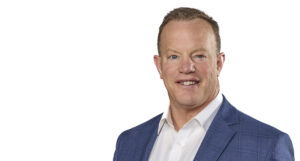Traditionally, managing investment assets within a trust was a little bit…well…boring.
For generations, trust clients favored security and stability over performance and growth, prioritizing low-risk, low-return investments and set-it-and-forget-it strategies. Good enough was good enough.
Those days are over.
Increasingly, trust stakeholders expect better service when it comes to their portfolios, with investments that maximize gains and with strategies tailored to their individual needs, philosophies, and objectives.
Trust providers must change, according to Russell Morse, wealth management consultant and Director of RJM Consulting.
“Trust providers are caretakers,” Morse said. “It’s the old perception that they are a stodgy bank that doesn’t have the resources or desire to manage money aggressively. They are perceived as offering less effective asset management, and it’s going to make it difficult for them to be successful long term.”
Fortunately, there are plenty of reasons for optimism.
Industry leaders like Morse and solutions providers like Cheetah are providing the knowledge and scalable resources that trust providers need to succeed in this paradigm shift. Here are five reasons why you should get on board the change train if you care about the future of trusts.
1) Competition is increasing
Increasingly, RIAs are moving into the trust business. They are starting new trust firms for two reasons: 1) To keep assets under their management as Baby Boomer’s age, and 2) To boost client retention across generations.
“Once RIAs do get trust business in, they are positioned very well to take better advantage of keeping those dollars under their umbrella,” Morse said. “They’re better at mining data and recognizing opportunities as they come.”
This convergence of RIA and trust services means that investment professionals are exerting an increasing influence over the trust industry. Consumers are beginning to expect that their trust assets be managed with the same level of service and personalization that an RIA would provide.
“A smart trust company would be looking at what RIAs do as far as how they use information — how they open those doors to more business, what catches people’s eyes,” Morse said. “Lead with performance, lead with what makes you different as far as managing money, and have people who can talk about the market — make your clients feel good about investing with you.”
2) It appeals to wealthy, profitable clients
With greater wealth comes greater expectations. And if trust organizations want to grow, they must be able to serve clients who want more intentional investment strategies and sophisticated products.
“Traditionally, trust companies are taking managed services and stuffing them into a trust box,” Morse said. “They come in and say, ‘I’ll meet with you every quarter. If you want me to walk your dog, I’ll walk your dog.’ But, I don’t need you to walk my dog. I do need you to provide great investment returns.”
While these high-net-worth (HNW) clients require more attention, their large accounts are also vastly more profitable for you, especially if you focus on efficiency, productivity, and scalability.
Hiring a team of portfolio managers is difficult and expensive nowadays, and doing so would cut into your profits. Thankfully, technology is making it easier for fewer managers to serve many more investors, even those with high expectations.
3) The investment landscape has changed
Exchange Traded Funds. Separately Managed Accounts. Cryptocurrencies. Non-fungible tokens. Environmental, Social, and Governance Investments. Robinhood.
The investments world is changing.
With the emergence of new asset classes, investment vehicles, strategies and technology, trust providers need to adapt to these changes by offering a broader range of investment options to meet the diverse needs of trustors and beneficiaries.
4) The talent pool is changing
The talent shortage in the American banking and financial services sector is real. And it’s not getting better anytime soon.
According to one recent report, “financial and business services are industries that will have the largest shortfall of workers by 2030.”
Within financial services, trust providers have been hit especially hard, according to Melissa Dinkel, Manager of Cheetah’s Business Process Outsourcing division (BPO).
“A lot of people in the industry are retiring, and it takes a special someone to work in trust,” Dinkel said.
Banks have responded by recruiting talent from the investment world to work in the fiduciary world, according to consultant Michael J. Dixon of Pohl Consulting and Training.
“If you work in a bank’s trust department, it is just as likely that you report to a former portfolio or investment manager as it is that you report to a fiduciary officer,” Dixon wrote in an article on LinkedIn. “This spillover from the investments space into the trust space has created a cultural shift, with an increased emphasis on managing trust assets with the efficiency and data-driven scalability of a Registered Investment Advisory.”
Embracing this cultural shift by getting more serious about investment management will help you recruit talent.
5) The Great Wealth Transfer won’t last forever
Everyone in wealth management is excited, and perhaps a bit anxious, about the Great Wealth Transfer. But like all good parties, it will come to an end.
And what happens when it does?
A lot of young beneficiaries with a windfall of wealth will take their inheritance and run. And they’ll run to someone with the experience and resources to keep younger investors happy, by focusing on performance.
But if you can prove that you have what it takes to grow their wealth and keep them happy, you can keep their business in-house.
Holistic wealth management with Cheetah
Cheetah believes in providing the unique solutions our clients need to grow their AUM and client base, all within a single platform. With Cheetah, you have access to the modern fiduciary capabilities of Cheetah, plus a wide range of investment services, such as traditional portfolio management, SMAs, and model marketplaces to manage investors.
Check out our investment solutions and schedule a consultation with our team to start getting serious about investment services.




